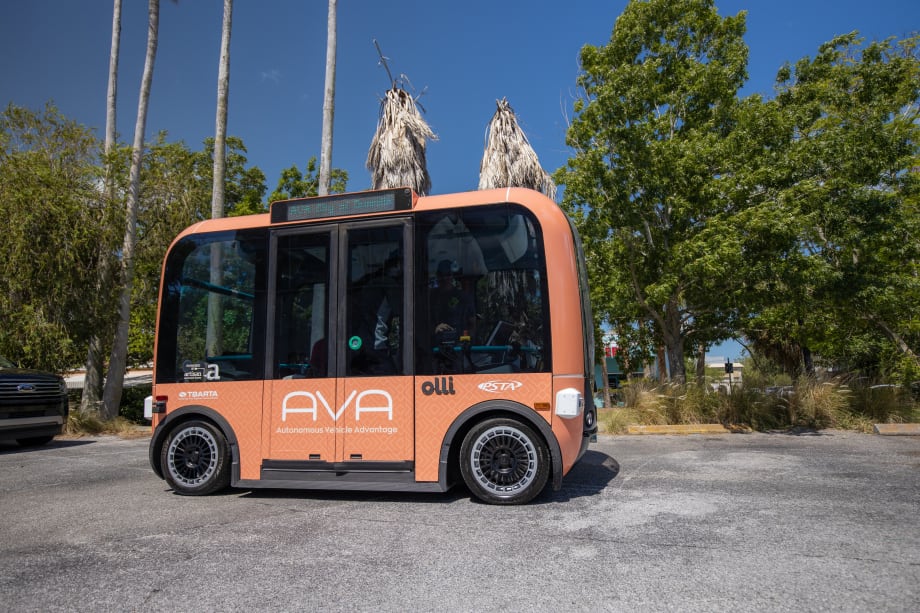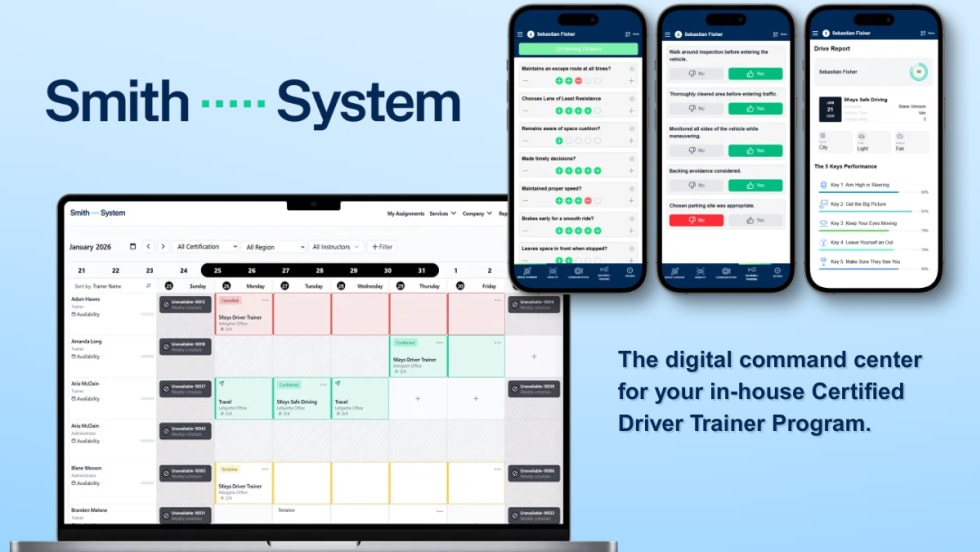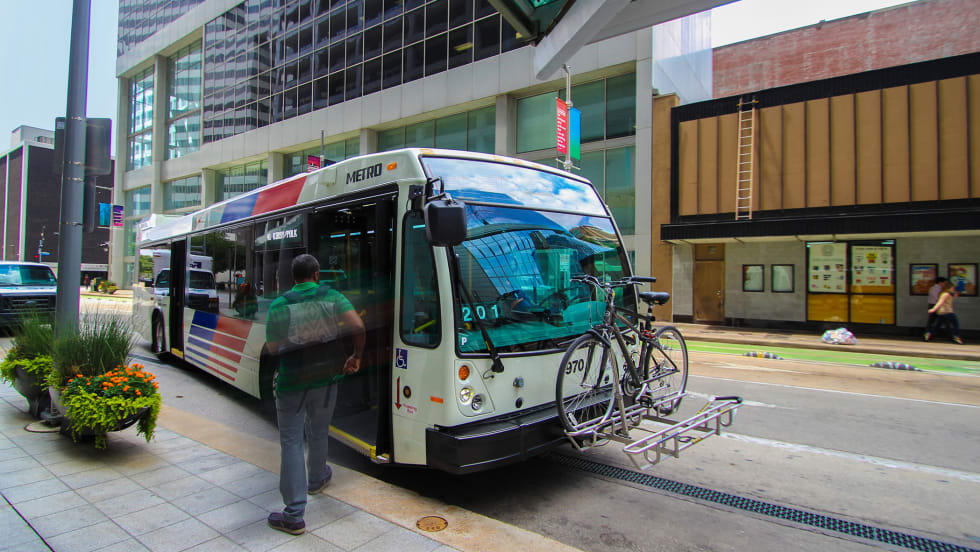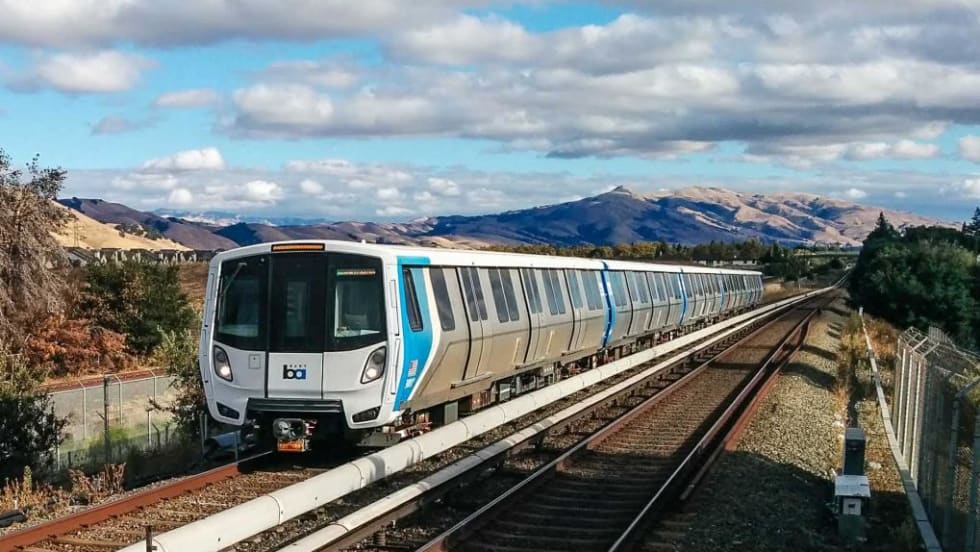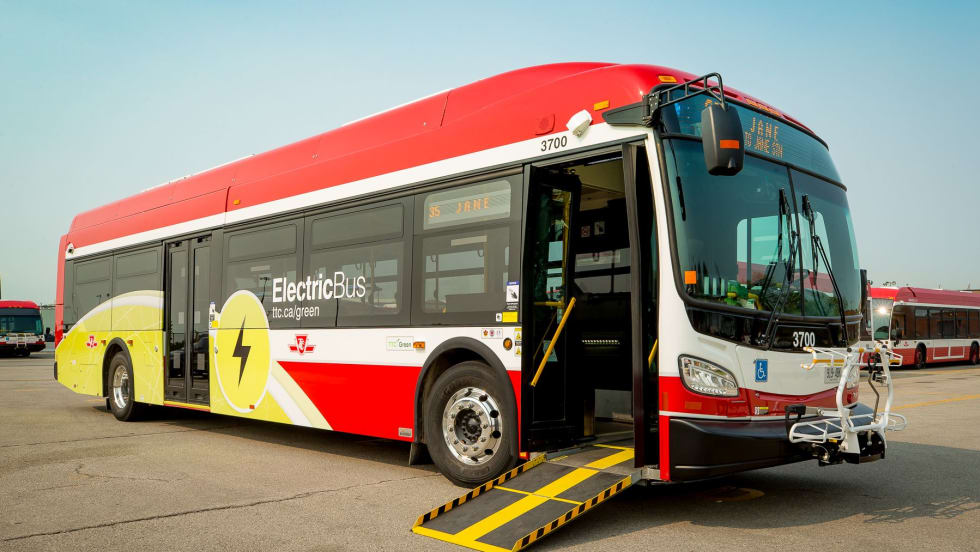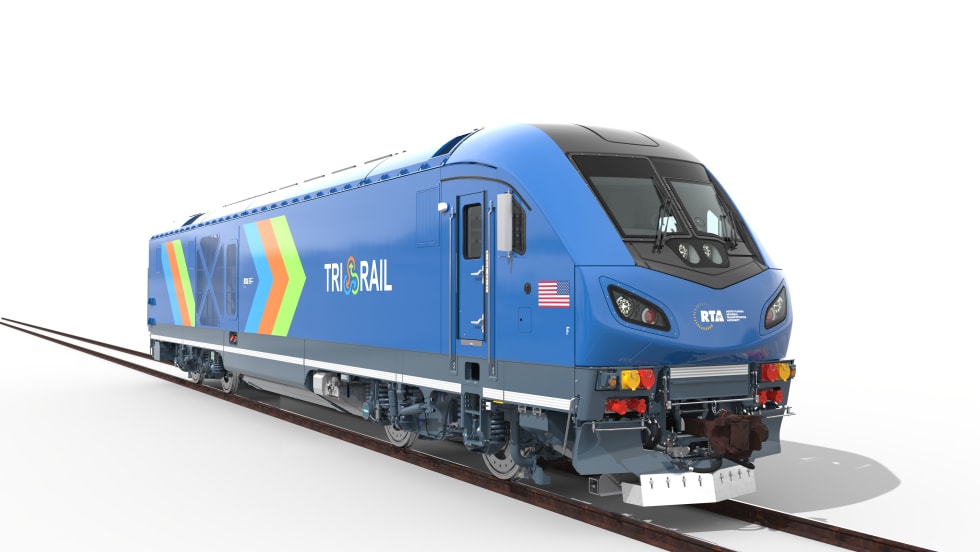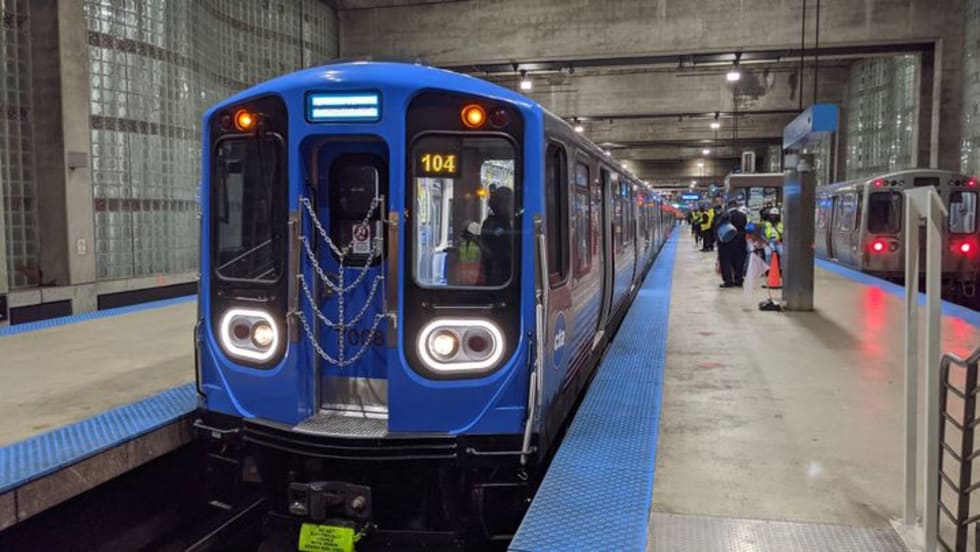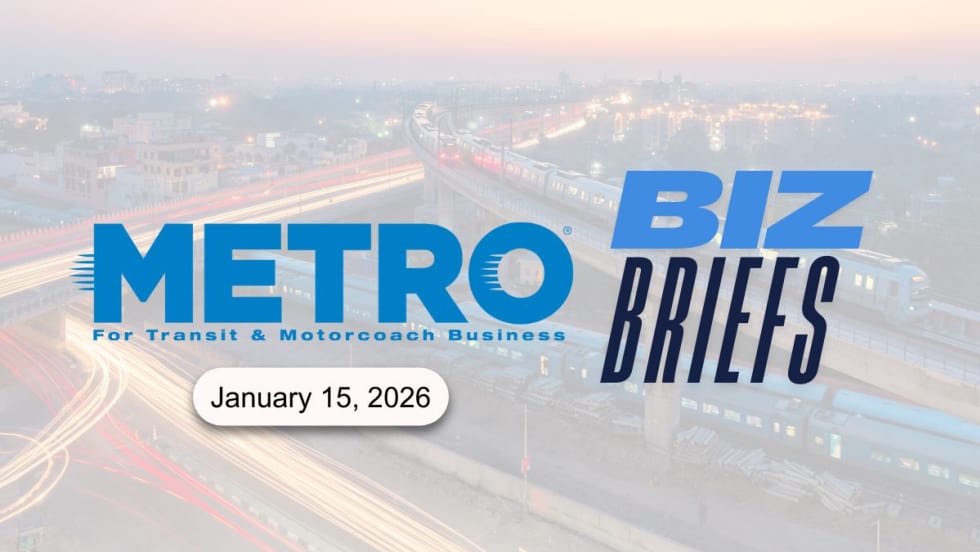After a successful stint along the St. Petersburg, Fla., bayfront, the autonomous shuttle, AVA, starts another test run today in Dunedin and will operate there through the summer.
AVA riders in Dunedin will experience a different automated vehicle than the one used in St. Petersburg, which carried nearly 5,000 riders over five months. The ongoing testing is a partnership between the Pinellas Suncoast Transit Authority (PSTA) and BEEP, and it receives funding from the Tampa Bay Area Regional Transit Authority (TBARTA). AVA is short for Autonomous Vehicle Advantage.
In Dunedin, AVA will be testing two routes in the City of Dunedin that align with the remaining Toronto Blue Jays spring training games at TD Ballpark and the summer months for Downtown Dunedin.
The shuttle uses an array of sensors outside of the vehicle providing a full 360-degree view of the environment. An on-board shuttle attendant, or copilot, serves as an ambassador for the riders to learn more about the technology and oversee the high-quality passenger experience. Riders will be able to enjoy all the shops and restaurants downtown Dunedin has to offer.
“We are beyond excited for the Dunedin community to try this all-new experience with AVA,” said Brad Miller, CEO of PSTA. “We invite people of all ages to enjoy and leave with a better understanding of how technology can help enhance safety all while providing clean-energy solutions that could transform transportation.”
The functionality of the shuttle is enabled by a safe, pre-determined planned route. AVA is equipped with multiple onboard LiDAR sensors and GPS tracking to ensure the path is maintained during operation. The vehicle performance is monitored by an onboard shuttle specialist as well as Beep’s Global Command Center located in Orlando. The vehicles are 100% electric, cost less than $30 per month to charge, and react 10 times faster than a human can, while never getting distracted from the roadway.
The autonomous shuttle will operate at a maximum speed of 15 mph as part of a three-month pilot. Riders will be required to wear a seatbelt and use a face covering while on the shuttle. Passengers can expect processes and procedures onboard that align with best practices for ridesharing and transit according to federal guidelines such as frequent cleaning procedures and a modified seating capacity. Passengers are limited to one round trip.



